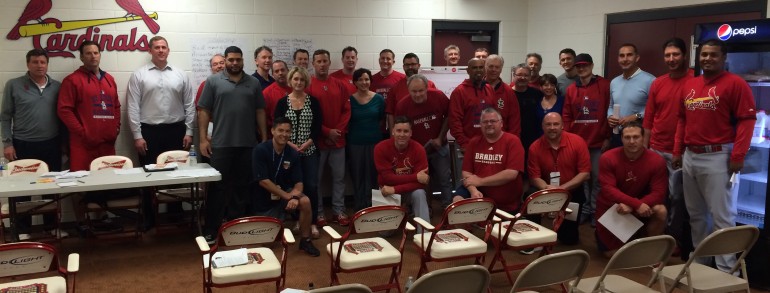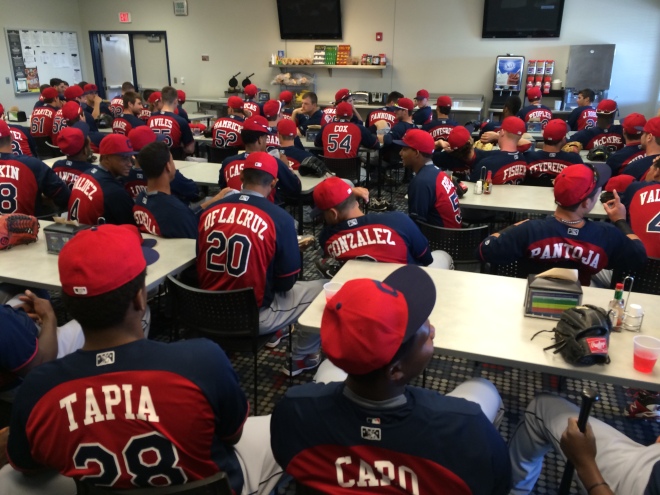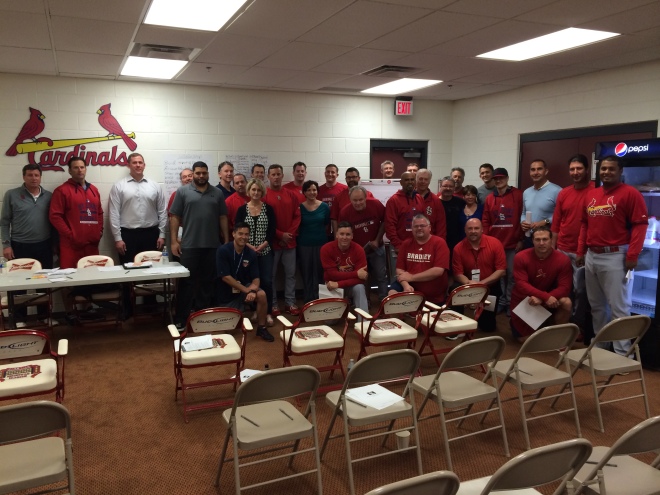In the last couple weeks I’ve presented to six different Major League Baseball teams during their spring training, from the New York Yankees to the Chicago Cubs. Unless you’ve been living under a rock over the past year, you’ve heard about a number of professional athletes who have physically assaulted the people they claim to love the most. The conversation that I’ve been facilitating with professional athletes from NASCAR to MLB to the WWE is leadership based with the objective of compelling the attendees to challenge the varying forms of abuse that exist in our culture and to realize the incredible influence they have over so many.
After defining leadership, we talk about what it means to be a bystander. Too often, when in the position of the bystander, we opt to take a very passive role for a variety of reasons. “It’s not my business,” some will say. Others talk about how they are afraid to get involved. “What will they think of me if I say or do something that no one else will?” Invariably, though, it comes down to people believing that someone else will do something. This cultural phenomenon is known as the “bystander effect.” In other words, extensive research shows that the probability of help is inversely related to the number of bystanders. The more bystanders present, the less likely it is that any one of them will get involved.
Before we can get into specific strategies of how these athletes of significant status can get involved and make a difference, though, we make sure we’re on the same page about men’s violence against women in our country. We talk about why domestic and sexual violence is serious. Men will share examples from their childhood when they watched as their fathers abused their mothers. Other men share how they are bombarded with examples of violence in the media. It’s at this point that I offer the first and only statistic in this conversation.
A number of years ago a study was conducted in the United States that had nothing to do with domestic violence. The objective of this research was to determine why people go to the emergency room. What they found was quite striking. The number one reason why women and girls ages 15 to 44 are admitted to the emergency room is because of domestic violence they experience from the men in their lives (skull fractures, broken bones, lacerations, burns, etc.).
You can feel the air get sucked out of the room when I share the results from that study. I let the room remain silent for a few extra moments before I ask the men how they feel about this. Some report being sad. I can see the anger in others’ eyes as they imagine a woman or girl in their life that may someday be impacted by this reality.
“Given the fact that everyone in the room agrees that men’s violence against women is serious and that you now know the severity of this major public health issue, why do you suppose so many men remain silent in the face of this ugly truth? Why do we find it so impossibly difficult to challenge other men’s degrading and abusive behavior towards women?”
The answer to that question is why I am sitting here outside my hotel between training sessions, writing this post. I’ll admit that it is a surreal experience when first walking into a room with people who get paid millions of dollars to do their job and who are idolized by even more people around the globe. The men in the room have a certain amount of status and privilege that is only bestowed on a select few. They are undoubtedly special.
But at the end of the session, when the men are trying to answer why so many remain silent, it occurs to me how they are just like the rest of us. They struggle with accepting the responsibilities they have as leaders much as we would. The difficulties in challenging our peers is the same as for someone who we watch during the big game on Sunday afternoon; the same as it is for the guy sitting next to us in church that same morning. Throughout each and every session the men in the room talk about how they care about the thoughts and opinions of others. More specifically though, their fans. Remember, these guys are human too.
I recognize that this is probably the first and last time that I may ever be in front of this group of people talking about this issue. I’m only one voice for a mere 90 minutes in their lives. I have to wonder though how much more effective this conversation would be if each of us as fans were more of an active bystander in the lives of these men, letting them know how we feel about men’s violence against women and the expectations we have for them as leaders.




